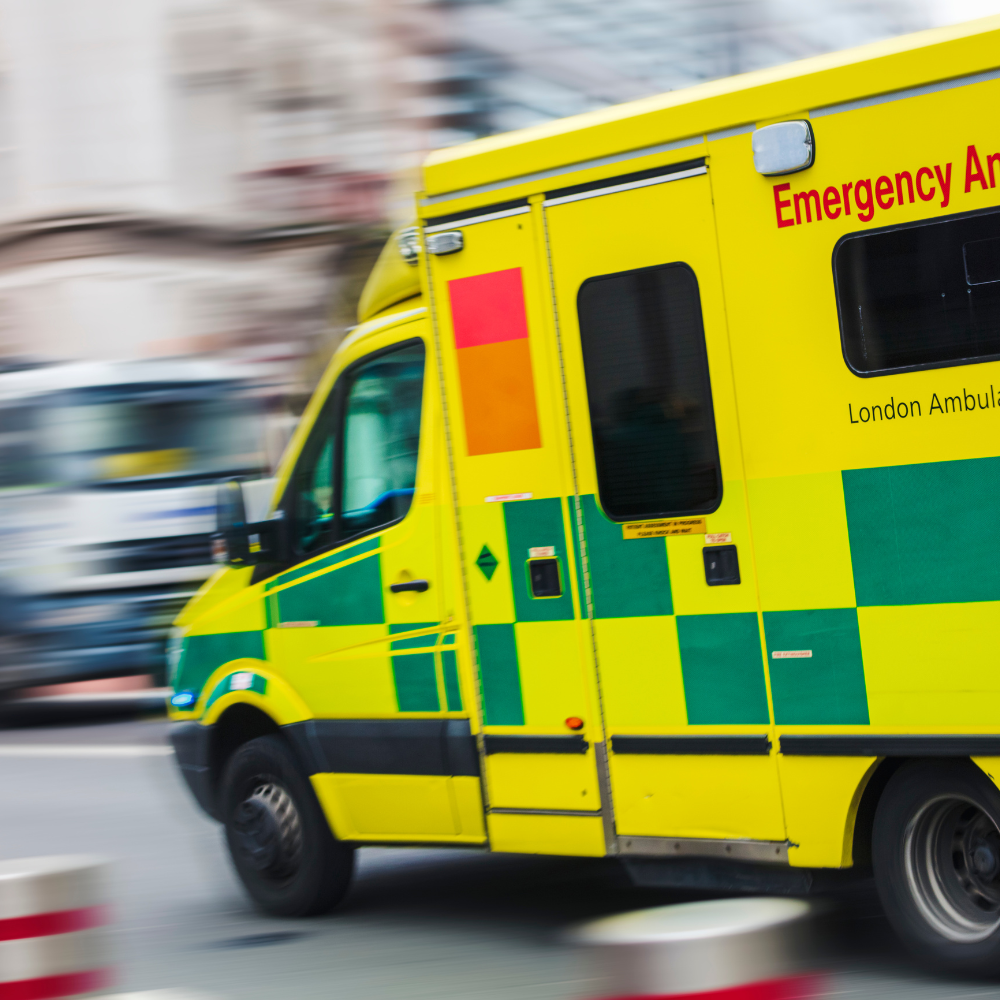
Ambulances are a lifeline in medical emergencies — but when delays occur, the consequences can be catastrophic. Over recent years, ambulance services across England have struggled to meet response time targets, leaving patients waiting dangerously long for critical care. In certain cases, these delays have led to preventable deaths and have raised serious questions about medical negligence within the emergency care system.
In 2017, the Secretary of State for Health approved new ambulance performance standards proposed by NHS England. These standards introduced four categories of emergency response, ranging from Category 1 (life-threatening emergencies) to Category 4 (non-urgent cases).
For Category 1 calls, ambulances are expected to respond within an average of 7 minutes, reaching 90% of cases within 15 minutes. However, these benchmarks have not been consistently met.
Reports have highlighted persistent delays across several regions. In 2022, the average response time for cardiac emergencies in England was recorded at 90 minutes — a devastating delay when every second can determine survival.
One major factor contributing to delays is the unprecedented rise in emergency calls. In June 2021, the North West Ambulance Service received over 155,000 calls — 48,000 more than the same period in 2020, and 23,000 more than in 2019. Not only are more people calling 999, but the calls themselves are becoming more serious: Category 1 incidents increased by 27% in just one year.
Call handlers have reported delays of up to 10 minutes before calls are even answered, with staff warning that patients could come to harm while waiting to connect.
Once patients are collected, another issue emerges. Ambulances frequently queue outside A&E departments due to hospital overcrowding. In some cases, crews have waited up to nine hours to transfer patients.
This backlog has a domino effect — ambulances tied up outside hospitals are unable to respond to new emergencies.
Adding to the strain, ambulance services face a high volume of non-emergency calls — often from people unable to see their GP or get through to the NHS 111 line.
These inappropriate calls divert critical resources from genuine emergencies and delay life-saving responses.
The NHS was under intense pressure even before COVID-19, and the pandemic magnified existing challenges. Staff shortages, funding gaps, and overwhelmed hospitals have collectively worsened ambulance response times — and, in turn, led to a rise in ambulance negligence claims.
When these systemic failures result in avoidable harm or death, affected individuals may be entitled to pursue compensation through a medical negligence claim.
To succeed in a medical negligence claim related to ambulance delays, you must prove two key elements:
In emergencies like heart attacks, strokes, or severe allergic reactions, time is critical. If an unreasonable delay worsened your condition, you may have grounds to claim compensation.
Generally, you must begin your claim within three years of the incident or the date you became aware that negligence caused your harm. Exceptions apply for children and individuals lacking mental capacity.
Here at Irvings, we have a dedicated team of specialist medical negligence solicitors who would be happy to discuss how we can help you and your family. We will be on hand every step of the way to offer both assistance and our expertise. We will fight to secure the maximum amount of compensation needed to meet your needs.
If you are seeking free, confidential initial advice from experienced medical negligence solicitors (on a ‘No Win, No Fee’ basis), contact Irvings Law on 0151 475 1999 or alternatively via email at Med.Neg@IrvingsLaw.com.
Go back to all newsThis is a question you may be asking yourself if you feel that you are entitled to some form of compensation. Why not ask us the question instead?
We offer free initial advice with absolutely no financial risk for you with our no-win-no-fee promise.
Please fill in the form with some basic details and one of our staff will be in touch to follow up your enquiry.